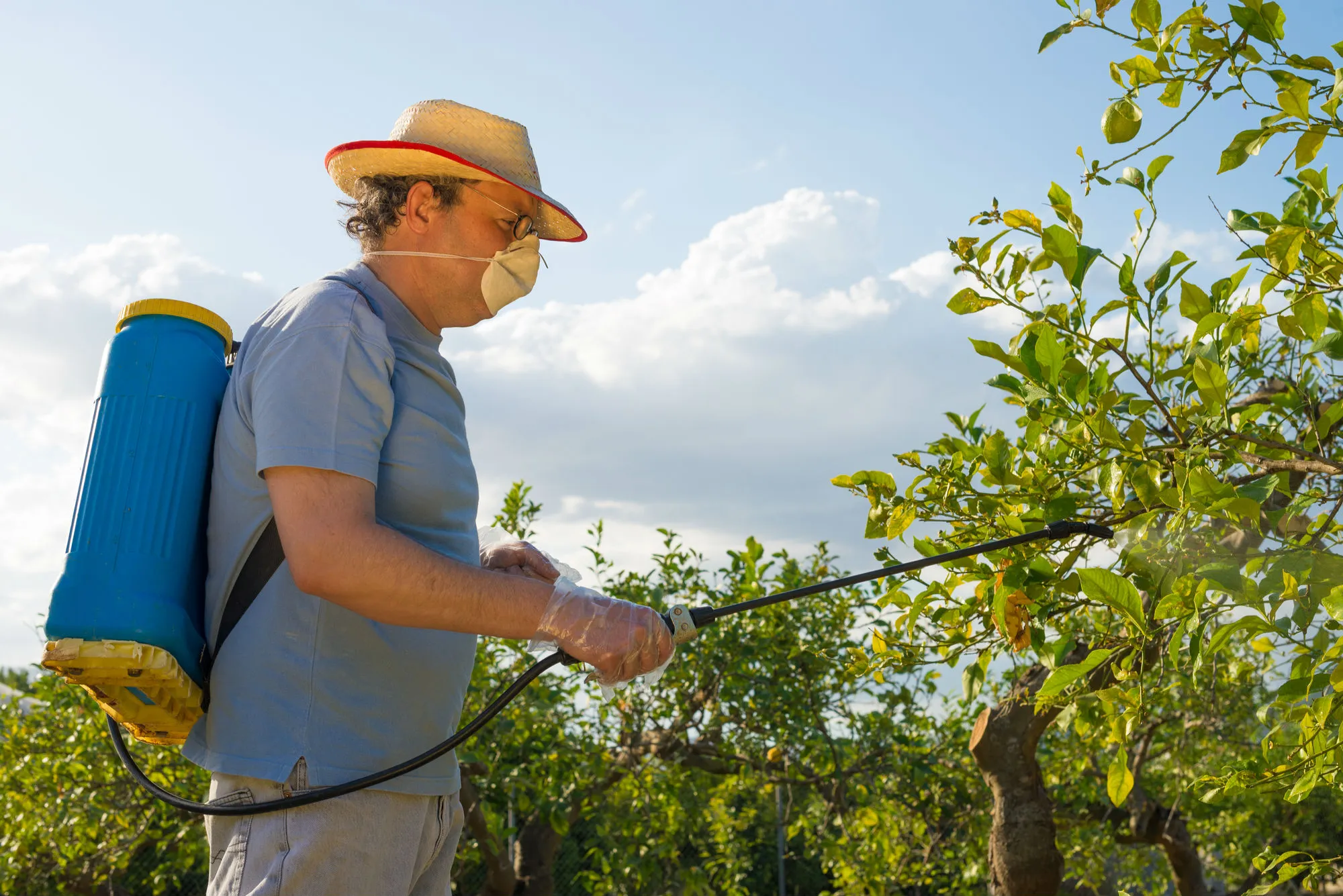
The cancer most frequently associated with use of the weedkiller Roundup is non-Hodgkin’s lymphoma (NHL).
What Is Non-Hodgkin Lymphoma?
Non-Hodgkin’s lymphoma is a type of cancer that forms in the lymphatic system – which is part of the immune system. The cancerous cells in non-Hodgkin’s lymphoma form from a type of white blood cell known as lymphocytes.
In 2018, approximately 74,000 people were diagnosed with this type of lymphoma, according to Medicine.net. The disease is far more common than the other general category of lymphomas – Hodgkin’s lymphoma.
Doctors aren’t sure exactly why cancerous cells form in non-Hodgkin’s lymphoma. They only know that, based on several risk factors, lymphocytes do not die normally and instead continue to grow and divide. The influx in rapidly dividing cancerous lymphocytes crowds the lymph nodes – leading to swelling.
There are several types of the disease, each treated differently. The most common subtypes of non-Hodgkin’s lymphoma are large B-cell lymphoma and follicular lymphoma. Both of these subtypes arise from lymphocytes called B cells. Other subtypes of non-Hodgkin’s lymphoma involve lymphocytes called T cells, although these subtypes are far less common.
The severity and treatment of non-Hodgkin’s lymphoma also depend on the cancer’s stage. Stage I includes cancer that is limit to only one lymph node region. Stage II includes cancer in two lymph node regions or one organ and nearby lymph nodes, although cancer in this stage is only found above or below the diaphragm.
Stage III and Stage IV non-Hodgkin lymphoma are more serious. Stage III involves cancer in the lymph nodes both above and below the diaphragm. Stage IV is the most advanced stage and includes cancer in several parts of multiple organs or tissues. In Stage IV, the cancer may also affect other organs such as the liver, lungs, or bones.
What Are the Early Signs of NHL?
Anyone who has concerns about getting the type of lymphoma connected with Roundup should be aware of early signs of the disease which can include weight loss, swollen lymph nodes, fever, and night sweats.
While there are several underlying causes of the disease, Roundup users want to know if the popular weedkiller contains dangerous levels glyphosate, a chemical linked to cases of cancer.
How Many Different Kinds of Non-Hodgkin Lymphoma are There?
Many of the subtypes of this cancer fall into two different groups: T-cell lymphomas and B-cell lymphomas. The vast majority of NHL cases are B-cell. The only way to know what kind of cancer you might have is to report your concerns to your doctor and work through testing to achieve a diagnosis.
What Are the Risk Factors for NHL?
Some people diagnosed with NHL have no clear risk factors. Certain infections, a weakened immune system, and medications that suppress the immune system can all heighten a person’s risk of getting NHL.
Some studies, and thousands of lawsuits, have claimed that there may be a connection between Roundup’s active ingredient, glyphosate, and NHL. Numerous other cancers, such as brain, breast, prostate and lung cancer, have also been linked to Roundup.
According to thousands of lawsuits filed against Roundup manufacturer Monsanto, the weedkiller poses a risk to those who use it both in commercial and residential settings. Many of the plaintiffs who have filed Roundup lawsuits worked as commercial groundskeepers. Landscapers, school groundskeepers, and those who maintain gardens and outdoor areas should be aware of the potential risks.
How Much Does Roundup Increase Cancer Risk?
 Even though Monsanto has denied that its weedkiller can cause lymphoma or other medical problems, a number of studies have explored the possible connection. The Guardian newspaper reported on a new scientific study that found the popular weed killing product can increase a person’s risk of lymphoma by as much as 41 percent.
Even though Monsanto has denied that its weedkiller can cause lymphoma or other medical problems, a number of studies have explored the possible connection. The Guardian newspaper reported on a new scientific study that found the popular weed killing product can increase a person’s risk of lymphoma by as much as 41 percent.
Monsanto has pointed to the Environmental Protection Agency’s (EPA) finding that glyphosate is unlikely to cause cancer, however, the International Agency for Research on Cancer (IARC) has labeled glyphosate a “probable human carcinogen.”
Consumers who have used Roundup regularly for many years are likely at the highest risk.
How Many People Have Taken Legal Action Over Roundup Issues?
More than 9,000 lawsuits have already been brought in the U.S. by plaintiffs who accuse Monsanto of failing to warn the public about Roundup’s risks. In 2018, the first Roundup cancer case went to trial and the jury found in favor of the plaintiff, a former school groundskeeper, reportedly ordering Monsanto to pay him $289 million, though a judge later reduced the award to $78 million, according to CNN.
More recently, Bayer has been in talks with plaintiffs and their lawyers in an attempt to resolve the claims against them on a larger scale. Earlier this summer, the company projected that it would pay up to $10.9 billion to settle existing claims and set aside $1.25 billion for future claims. More recently, these projections for future payments were increased to $2 billion.
“The decision to resolve the Roundup litigation enables us to focus fully on the critical supply of health care and food,” Bayer CEO Werner Baumann said in statement, according to NBC. “It will also return the conversation about the safety and utility of glyphosate-based herbicides to the scientific and regulatory arena and to the full body of science.”
Although around 88,500 claims have been settled by Bayer, tens of thousands remain. In a California-based multidistrict litigation, Bayer has run into roadblocks in their attempts to settle the cases. Although U.S. District Judge Vince Chhabria put a stay on the suit while Bayer tried to settle the cases, 1,861 of the 3,787 plaintiffs in the MDL had not settled by Judge Chhabria’s Nov. 2 deadline.
Judge Chhabria has not extended this stay and, as a result, some of the cases may move forward to a trial. Bayer does not have a strong history with Roundup cancer lawsuits that go to trial and lost three of these trials in 2018 and 2019.
Bayer now faces criticism for its handling of one Roundup cancer lawsuit in a Georgia appeals court. According to a letter from nationwide Roundup cancer lawyers, the company is essentially paying a Georgia doctor to continue his claims. A confidential settlement with the man allegedly includes a $100,000 penalty which the plaintiff must pay if he choses to drop his appeal.
The Roundup lawyers claim that the settlement’s terms aim to secure a favorable win in the appeal which would assist Bayer in defending against countless other allegations on a federal level.
The California Roundup Cancer MDL is In re: Roundup Products Liability Litigation, Case No. 16-md-02741, in the U.S. District Court for the Northern District of California.
If you or a loved one developed cancer after using Roundup as a farm worker or home gardener, you may have a legal claim. Legal migrant farm workers may also seek help. Learn more by filling out the form on this page for a FREE case evaluation.
ATTORNEY ADVERTISING
Top Class Actions is a Proud Member of the American Bar Association
LEGAL INFORMATION IS NOT LEGAL ADVICE
Top Class Actions Legal Statement
©2008 – 2026 Top Class Actions® LLC
Various Trademarks held by their respective owners
This website is not intended for viewing or usage by European Union citizens.
Get Help – It’s Free
Join a Free Roundup Cancer Class Action Lawsuit Investigation
For the most up-to-date information on this case, click here.












